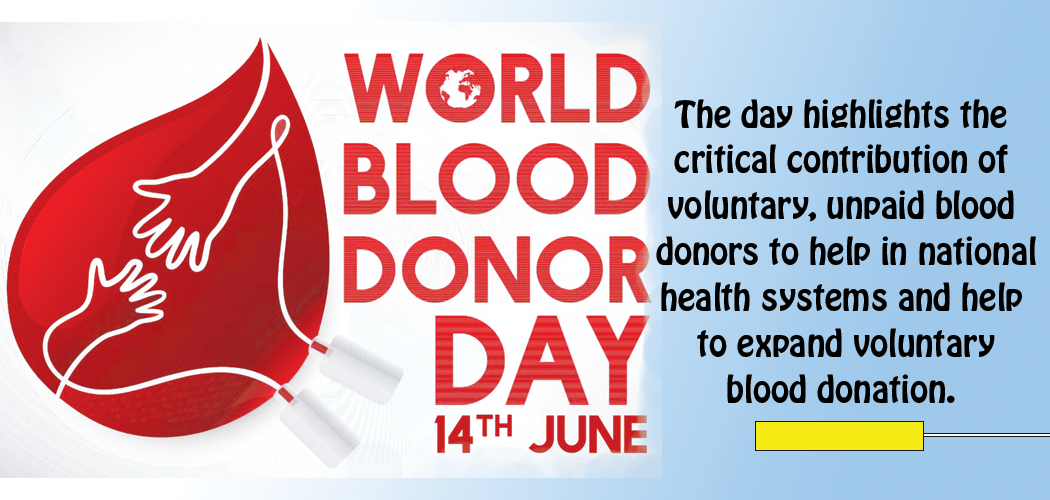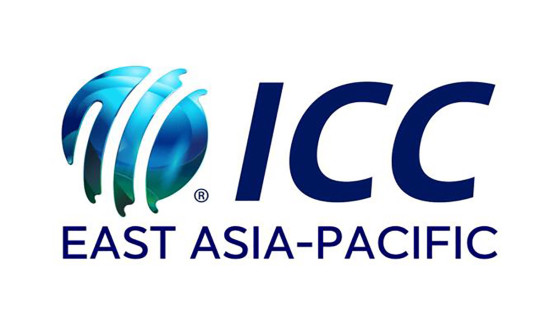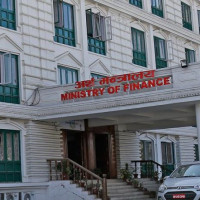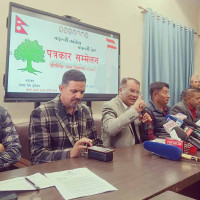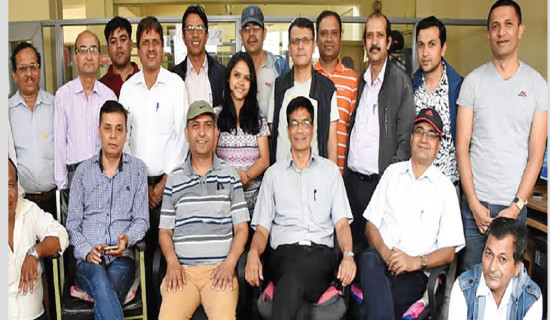- Friday, 30 January 2026
Blood Donor Day to be marked today
Kathmandu, June 14: Each year, World Blood Donor Day is marked on June 14 to raise global awareness on the need for safe blood and blood products for transfusion. This year, the day is being celebrated with a slogan, ‘Donating blood is an act of solidarity. Join the effort to save lives.’
The day highlights the critical contribution of voluntary, unpaid blood donors to help in national health systems and help to expand voluntary blood donation by various governmental and nongovernmental organisations by reinforcing national and local campaigns.
According to Kathmandu-based Central Blood Transfusion Service of Nepal Red Cross Society (NRCS), it has been providing blood transfusion service through 73 district-established in 108 locations and providing more than 4 million units of blood and blood components to needy patients.
According to Dr. Prakash Yadav, deputy-director at Kathmandu-based Central Blood Transfusion Service of NRCS, of the total blood donors in Nepal, women constitute only 15 to 17 per cent while others are men.
Dr. Yadav informed that 319,000 units of blood were supplied in the last fiscal year and 226,000 units of blood were collected.
Prem Sagar Karmacharya, president of the Nepal Voluntary Blood Donors Society, who has donated blood for more than 170 times, said that there are sufficient blood donors across the nation.
“I am donating blood four times a year,” said Karmacharya and requested all to donate blood to save others’ life.
With a motive to save life of needy patients, many people are donating blood voluntarily.
But due to the lack of proper coordination among the service seekers and providers, sometimes it is hard to find the required blood, said Karmacharya.
The central blood transfusion service regularly conducts blood donation camps at Bhrikutimandap, Bhugol Park, Ason, Chabahil Chowk, Pashupati Temple premises, NRCS central blood bank Soalteemod and Radha Krishna Mandir in Dillibazar to meet the shortfall.
Outside Kathmandu Valley, people can contact one of the Regional Blood Transfusion Centres in Biratnagar, Pokhara, Nepalgunj, and Chitwan, or the nearest District Blood Bank or Hospital unit.
The Paropakar Maternity and Women Hospital’s blood bank has been managing the supply of blood by reaching out to other private hospitals of the adjoining districts. So far, according to Prasuram Dahal, chief of the hospital blood bank, they’ve managed to supply blood to other hospitals as well.
According to Dahal, the blood bank collects blood through donation campaigns, and it has been supplying more than 60 units of blood daily.
“We do not have a shortage of blood donors, but sometimes we face the problem due to lack of coordination,” said Dahal.
According to the World Health Organisation (WHO), blood and blood products are essential resources for effective management of women suffering from bleeding associated with pregnancy and childbirth, children suffering from severe anaemia due to malaria and malnutrition, patients with blood and bone marrow disorders, inherited disorders of haemoglobin and immune deficiency conditions, victims of trauma, emergencies, disasters and accidents.
Similarly, blood and blood components are essential for patients undergoing advanced medical and surgical procedures.
According to health experts, healthy people aged between 18 to 60 with a minimum of 45 kg weight can donate blood. One needs to have hemoglobin above 12 gm/dl, blood pressure 110-160/70-96 mmHg, should not be pregnant, breast feeding, and it has been at least eight days since the start of the recent menstruation, not have recent use of drugs or strong medicines (people who take strong medicines for a short period will not be able to donate blood from one week up to two years) and not have a medical surgery for two years to donate blood. People are restricted to donate blood if they are suffering from cancer, heart diseases, HIV/AIDS, hepatitis B or C, hemophilia and thalassemia, diabetes, liver diseases, polycythemia vera, asthma and an endocrine disorder or a hormonal disorder.

